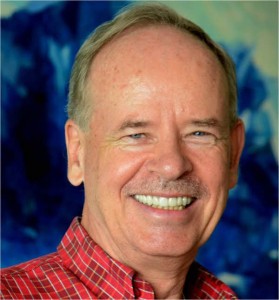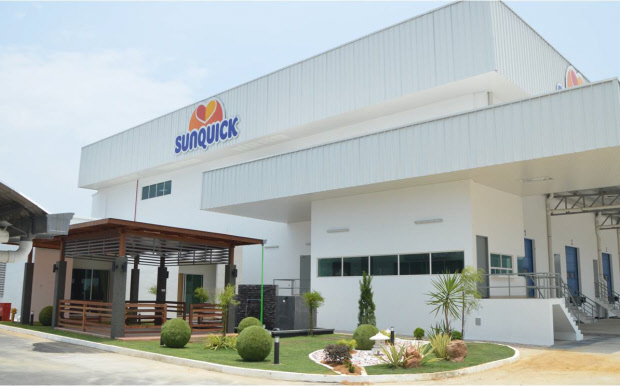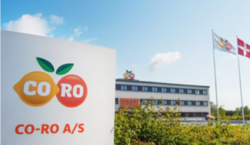Denmark is legendary for its dairy products and beer brands, but also other beverages such as fruit juices. And from the island of Penang island comes Sunquick. But what most consumers of this very popular brand in Malaysia probably do not know is that it is in fact Danish. It will also surprise most that the largest manufacturing plant worldwide for the brand is situated in Malaysia. The today fully automated manufacturing facility is even bigger than the one on the brand owner’s home turf!
One explanation for this is the brand’s popularity in Malaysia, the most popular Sunquick market in the world!

“We are the most expensive you can buy but still enjoy 42 per cent market share. That is due to our recognition as a high quality product,” General Manager Erik Lund proudly explains the success to ScandAsia in Penang (interviewed in early 2015 in George Town)
In addition the Penang plant has successfully managed to establish exports to a number of countries, including Brunei, Singapore and The Philippines as well as to the new virginal markets like Cambodia, Laos and Vietnam.
“With low production cost the company was able to compete with the brand owner’s own factory in China; the one meant to cover the export markets in Asia. We’re now operating at a fixed cost below 7 per cent and that is uncommon.”
Equipped for growth
The company in question, Barkath Co-Ro, is a joint venture between Co-Ro Foods A/S and the local Penang-based company Kumpulan Barkath, which started marketing and selling Sunqvick in Malaysia over 35 years ago. Local manufacturing was granted and by 2013 Sunquick Malaysia is fully modern and automated, employing 45 staff and prepared for increased production (only half of its new capacity now utilized.)
Erik presents this successful transformation, which has lead to significant awards for him and his team, including the “Excellent Manufacturing Results” award from Co-Ro Food A/S as well as the 2013 The FMM (Federation of Malaysian Manufacturers) Excellence award for manufacturer of the year (category: SMIs.)
Now Barkath Co-Ro aims for 20 per cent growth on the export market for year 2015, which is not overly optimistic given that sales turnover has climbed each year since 1999 – the year Erik arrived to be the new man in charge representing the Danish mother company.
“It might seem a little bit optimistic but we’ll go for it!”
He expects Vietnam to grow the most. In Malaysia the Muslim population are the main consumers, while export yet account for only 7-8 per cent of the total production.
With the most recent upgrade of the manufacturing plant and the effective production process now implemented they are equipped for future growth.
“We can double from where we are today.”
To meet ever-increasing demand and the need for larger capacity a newer manufacturing plant was established back in 1993 and subsequently expanded further in 2014 with a new extension of the factory building, including a 4000 sq. metres new warehouse and office lot.

Work force the greatest asset
Some key factors have enabled turning this fruit juice plant into an effective hi-tech production.
Erik had realised soon after arriving that he would have to tear down the ‘big boss’ culture that is common in Malaysia: for every little detail employees ask their boss. Breaking down barriers was a must to achieve the corporate culture of efficiency and effective multi-skilled staff that he envisioned. Introducing a team and group culture had then been the method in order to achieve this; including teambuilding trips as a tool.
“The real knowledge lies with the worker on the floor so I decided to try and change things.”
Since then he always prompts the question to his employees: ‘What do you think? Come back with a solution!’
“When they came back with different suggestions, we would discuss those and as it was their solutions, they took ownership.”
“In our creative groups our theme was productivity. And each idea was tested with Edward De Bono’s Six Thinking Hats, and those, which passed the test, were approved. It was a very inspiring process and good ideas led to more good ideas.”
The processing system was computerised, the bottle rinser speeded up to 20 % above manufacturers top speed, the filling machine and labelling machine speed increased 20% above the manufacturers original top speed, the cardboard packing machine was rebuilt, the palletizing machine upgraded from semi automatic to fully automatic unit – the list of improvements are long and all-encompassing.
And in that process he discovered what he describes as the Malaysian work force’s greatest asset.
“I soon realized workers are very flexible compared to in Europe where we are all tied up with restrictions and are only allowed to do specific tasks directed by the unions. In Malaysia we are free to do what we want, which is beneficiary to all parties. And when you come with changes they are very open to go through those.”
“Part of our policy is that the staff is the most important asset we have. We train them to be multi-skilled and flexible. So all our factory personnel have a forklift license, for instance and are trained as machine operators. Here they can do anything, and they are very open to be educated; to go into new fields and so on.”
A Capacity Utilization program was also developed and thanks to the flexible workforce the team can cross the 100 per cent capacity for a day. This is achieved by running the machines also during the breaks. The immediate incentive for workers is the extra salary they get.
The level of English skill can be a problem especially among younger staff. And those are sent on language training. Sourcing staff can also be a problem despite that Penang has a long tradition as a production hub.
There is also no logistic advantage to be based on this island. Neither does the abundance of fresh fruit in Southeast Asia play any role. The compound arrives by ship from Denmark.
“Fruit today is a commodity. A 100 per cent juice in the supermarket comes from the same source; most often from Brazil where the oranges are harvested.”
“There are a lot of product development issues here. We want to keep this and the recipes back in Denmark. That’s certainly not the cheapest but the safest way. A lot of companies are trying to copy Sunquick and they have not really succeeded yet.”
Island life
After so many years in Penang Erik is also the right person to ask about how life is on this island with its unique cultural heritage.
“It’s a wonderful place with friendly atmosphere, good food and reasonable prices,” he thinks. “And it’s been very reasonable to buy property here, but I have seen the property prices increase at least four times since I came.”
Erik recommends people to live there.
“Yes, for retirement I always recommend Penang.”
“We can see a lot of Scandinavians coming to Penang now, via the Malaysia My Second Home programme. And the major thing is that you can come here with your pension from abroad, and it’s tax-free. And you can even have a small job limited hours and do a bit of business if you want. And you can own land on your own.”
“They choose Penang because they simply love it. It has everything: the jungle, the hills, the sea, and the wonderful restaurants and the heritage town, and shopping centres where you can get anything. And also good nightlife but more of the family-driven kind.”
Erik himself being a seasoned biker, he especially appreciates the nature on the island.
“I’ve been riding the bicycle here since I first came and we bikers were far and few between back then. Now Penang is becoming the biking island of Southeast Asia to enjoy its nature and riding up and down mountains. Visitors can also rent bikes downtown and it is really an easy way to get around and it’s much faster than the car in rush hour.”


I am interested sunquick juice
I find it ironic that Co-Ro Food picked Malaysia as a production base for Sunquick fruit concentrate since the product was introduced in the Philippines in the 1970’s & bottled by Marina Sales, Co-Ro’s Philippine affiliate, for many years until recently, when the Penang facility started supplying the Philippine market.